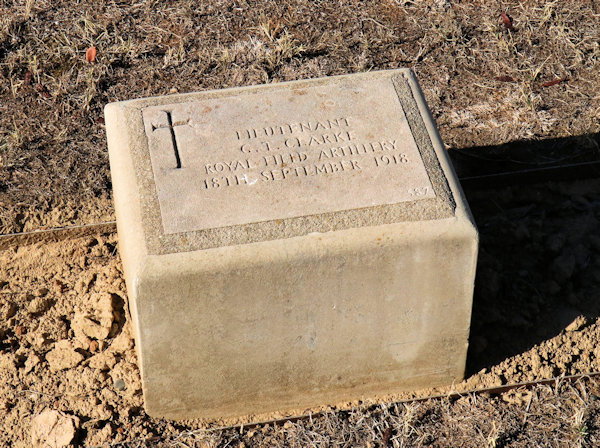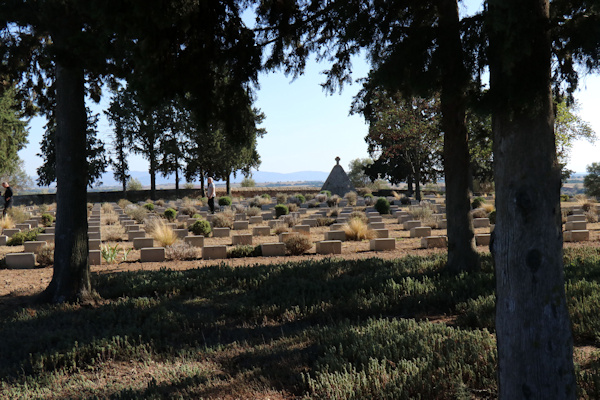Name
George Thomas Clarke
6/05/1889
Conflict
First World War
Date of Death / Age
18/09/1918
28
Rank, Service Number & Service Details
Lieutenant
Royal Field Artillery
114th Brigade
'C' Battery
Awards: Service Medals/Honour Awards
1914 /15 Star, British War and Victory medals
Cemetery/Memorial: Name/Reference/Country
SARIGOL MILITARY CEMETERY, KRISTON
D. 587.
Greece
Headstone Inscription
He has no family Headstone Inscription.
UK & Other Memorials
St Thomas' Mission Hall Memorial, Green Tye, St Thomas' Church Memorial, Perry Green, Much Hadham Village Memorial, St Andrew’s Church Memorial, Much Hadham, Stone Bench Plaque, Much Hadham, Congregational Church Memorial, Hadham Cross
Pre War
George Thomas Clarke was born in Leyton, Essex, on 6 May 1889, son of Samuel John Clarke, a Pattern Card Maker and Frances (nee Herring) Clarke, one of thirteen children, he was Christened on 2 March 1910, at St Mary The Virgin, Walthamstow, London/Essex.
1891 Census records George aged 2, living with his parents, and six siblings at Florence Terrace, Lea Bridge Road, Leyton, London/Essex. The family had a Live-in Nurse.
1901 Census records George aged 11, living with his parents and eleven siblings at, 101, Orford Road, Walthamstow, London/Essex.
In 1911 he lived at Ruscombe, 3 Hempstead Road, Walthamstow, London/Essex, with his mother and six siblings, he was working as a printer’s manager. The family had a live-in Domestic Housemaid.
Probate awarded to Edwin James Clarke, Farmer (brother).
Wartime Service
George Thomas Clarke first joined the Honourable Artillery Company as a Private (Service number 558 & 5570). Later he was transferred to the Royal Field Artillery, reaching rank of Lieutenant.
He went to Egypt on 21st April 1915. It seems likely that George was killed during the two-day battle of Grand-Couronne and Pip Ridge, where the British, with support from the Greeks, attacked Bulgarian positions. The attacks were repelled with heavy allied casualties.
It seems likely that George was killed during the two-day battle of Grand-Couronne and Pip Ridge, where the British, with support from the Greeks, attacked Bulgarian positions. The attacks were repelled with heavy allied casualties.
Died of wounds probably in hospital in Sarigol.
Additional Information
No connection has yet been established with Much Hadham area.
Acknowledgments
Stuart Osborne
Malcolm Lennox, “Lest We Forget – Much Hadham 1914-18” by Richard Maddams (Much Hadham Forge Museum)



